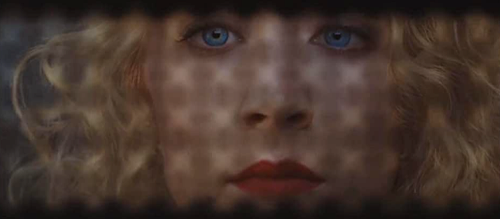The French Dispatch (2021) Review
The French Dispatch (2021)
Director: Wes Anderson
Screenwriters: Wes Anderson
Starring: Bill Murray, Owen Wilson, Tilda Swinton, Frances McDormand, Jeffrey Wright, Adrien Brody, Benicio del Toro, Léa Seydoux, Elisabeth Moss, Timothée Chalamet, Edward Norton
Wes Anderson’s style is by now so distinctive that it has been much parodied and imitated, and yet it remains a glorious tinderbox of invention that continues to enthral many audiences. Fresh off the success of The Grand Budapest Hotel and Isle Of Dogs, the famed director returns with The French Dispatch, a loving ode to France and print journalism. Delayed from its original July 2020 release, The French Dispatch premiered at Cannes and London Film Festival before a wide release in October 2021. To date, this might be the most Anderson movie of them all; how much mileage anyone gets out of The French Dispatch may depend on how well versed they are in this particular filmmaker’s ouevre.
The French Dispatch essentially comprises of four short stories featuring articles from the final edition of the titular French Dispatch, a supplement in the Liberty, Kansas Evening Sun from the fictional French town of Ennui-sur-Blasé. We begin with the news that the magazine’s editor Arthur Howitzer Jr (Bill Murray) has died and that he had wished for the magazine to wind down upon his death, thus the four stories are to be the magazine’s last.
The stories in question are as follows…
“The Cycling Reporter” by Herbsaint Sazerac (played by Owen Wilson), navigates Enui by day and night, giving readers a tour of the town the magazine operates from. While this is a relatively short segment, it still showcases Owen Wilson’s natural ability to fit seamlessly into Anderson’s projects, Wilson of course having co-written the first three films Anderson worked on.
“The Concrete Masterpiece” by J.K.L. Berensen (Tilda Swinton in fine comedic form) focuses on incarcerated artist Moses Rosenthaler (Benicio del Toro), and particularly his relationship with his muse Simone (Léa Seydoux). The bulk of the story operates as a play on the art world with Adrien Brody’s Julien Cadazio an art dealer of great success deeply interested in Moses’ works. This segment acts as a showcase for its cast with Brody of course a standout in The Grand Budapest Hotel and Del Toro showing a natural aptitude for the whimsical nature of Anderson’s work.
“Revisions to a Manifesto” by Lucinda Krementz (Frances McDormand) depicts a series of turbulent student protests. It’s clear these sequences strongly bear the influence of French New Wave pioneers Truffaut and Godard, with direct nods to Masculin Feminin especially. This sequence is led by Timothée Chalamet’s Zeffirelli, a leader within the student protest movement.
The final story is “The Private Dining Room of the Police Commissioner” by Roebuck Wright (Jeffrey Wright). This story is almost a story within a story, with Wright giving a TV interview recounting an absurd encounter in which the Comissaire’s son was kidnapped, and a story involving police cooking. This is arguably the deepest of the overarching stories, being more soulful and introspective than some of the earlier segments.
The cast are, as any fan of Anderson’s work would expect, on top form. And, while some certainly have less to do than others, the leads in each of the main segments are clearly having a blast, each illustrating their understandings of the nuances of Anderson’s dialogue. Christoph Waltz, Willem Dafoe and Elisabeth Moss could do with more to do, but with a cast as loaded as this there are always those who draw the short straw.
Robert Yeoman’s Cinematography is a constant delight. Flipping between black and white and colour throughout, Yeoman handles the juxtaposition with great skill and allows certain elements in each story to shine, whether that be Moses’ works of art or the piercing blue eyes of Saoirse Ronan. The production design, which is a treat across Anderson’s filmography, is once again a consummate joy, be it the offices of the French Dispatch or Café Le Sans Blague which makes appearances throughout.
While perhaps The French Dispatch is not Anderson’s most free-flowing film, it is an amalgamation of everything Anderson has put to film to date, drawing on his love of cartoons, newspapers and French culture (in particular cinema). This is a love letter to the world of journalism, and it contains some stellar lead performances and wildly creative directorial choices. If you are not already enamoured by this director’s style, The French Dispatch may not be for you, but if you are you will certainly find much to love.
21/24


